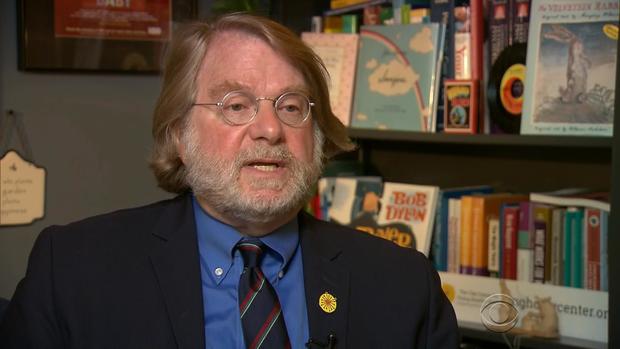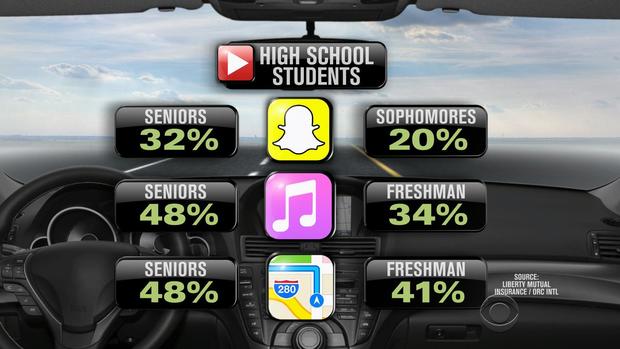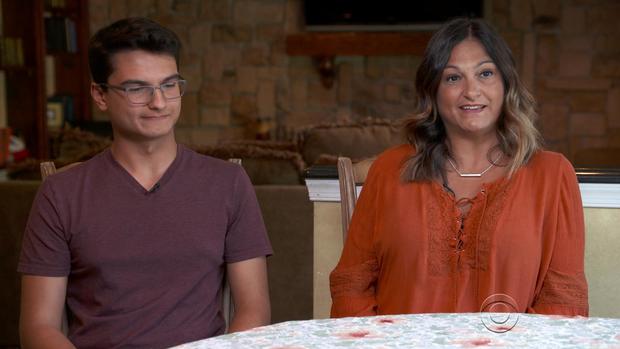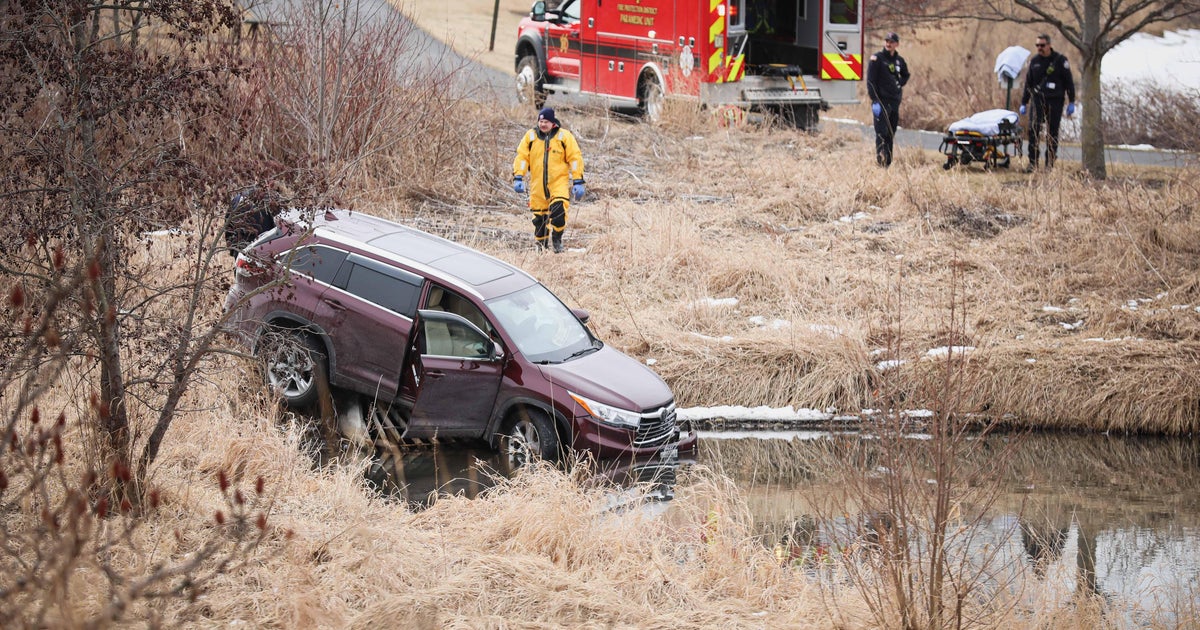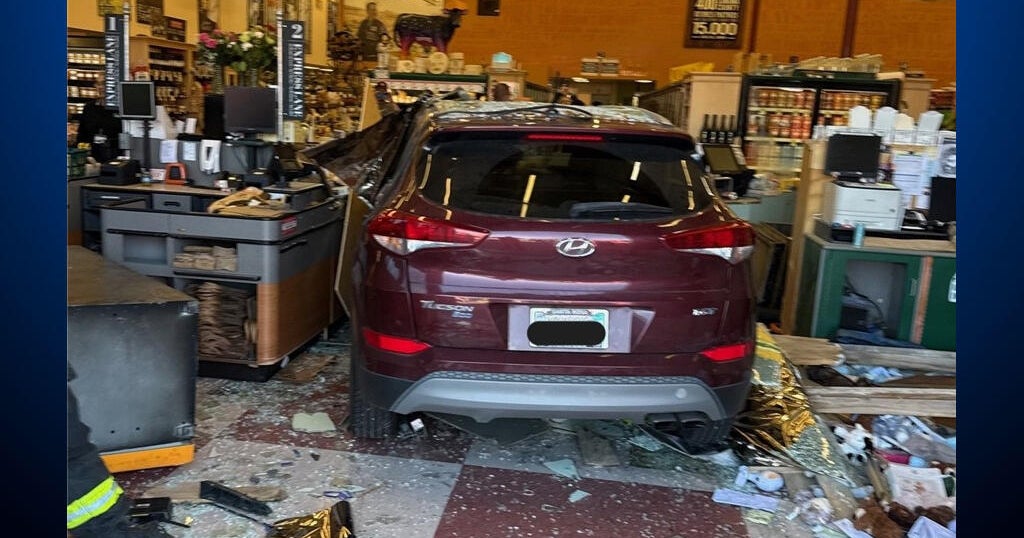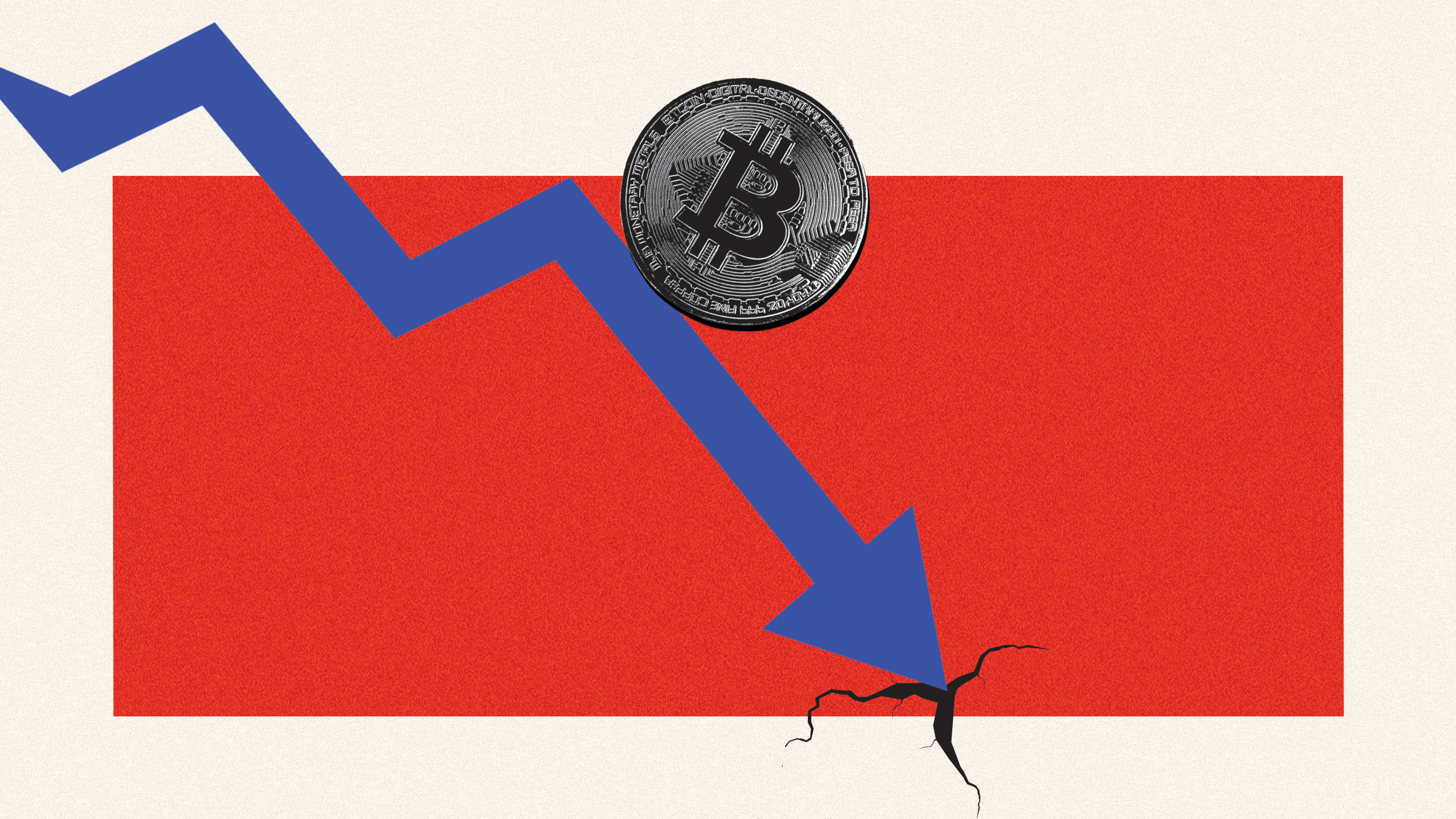Older teens more prone to dangerous driving behaviors, study says
NEW YORK -- A study to be released Wednesday has a surprising finding about teenage drivers: the older the teen, the greater the risk on the road.
A livestreamed crash shocked the country. With her Instagram recording, 18-year-old Obdulia Sanchez lost control of her car. The two teens in the car weren't wearing seatbelts, her 14-year-old sister died.
Harvard Medical School professor Dr. Gene Beresin oversaw the study that found high school seniors are significantly more likely than younger teens to use their phone while driving.
"You have to say, look, a motor vehicle is a potential weapon of mass destruction," Beresin told us.
According to a study commissioned by Liberty Mutual Insurance and Students Against Destructive Decisions, nearly 32 percent of seniors admitted using Snapchat behind the wheel -- compared 19 percent of sophomores.
Seniors were also more likely than younger drivers to use music apps (48 percent vs. 34 percent) and GPS (48 percent vs. 41 percent)
"It may be that the tendency for teenagers is that you start cautious and you get more and more experience and if they feel more confident and more powerful, they may jump to more risky behavior," Dr. Beresin said.
The students also reported their parents tend to become less strict as they get older. At the same time, many states drop restrictions on teen drivers when they turn 18 -- including curfews and limits on the number of passengers.
Antoinette Mullins is not dropping her restrictions. She's made it clear to her 18-year-old son Dylan his driving privileges depend on him staying off the phone.
"I'm scared, it's scary, I see social media has taken over these kids' lives," Mullins told us.
Dylan said, "If she were to ever find out something happened and I was texting because of it, that'd be it for me and driving."
"There'd be no car," Dylan's mother said.
Dylan keeps the cell phone in the glove box, but admits none of his friends do that. The study found nearly 60 percent of high school seniors reported having a collision or a close call -- a higher percentage than their younger peers.

